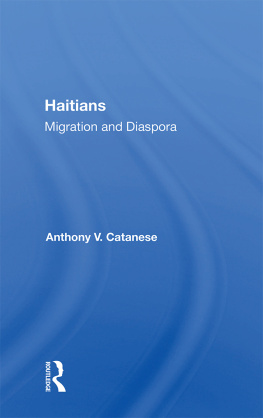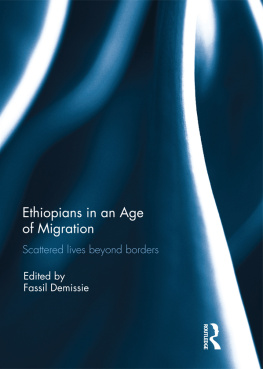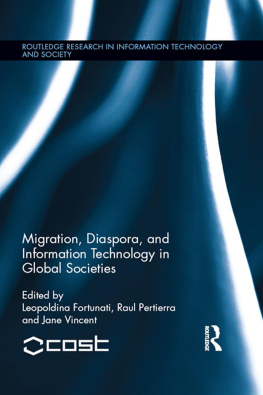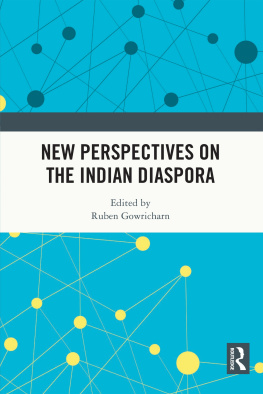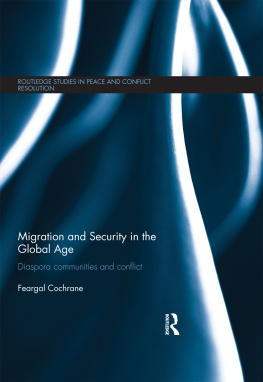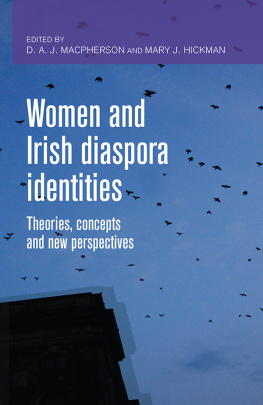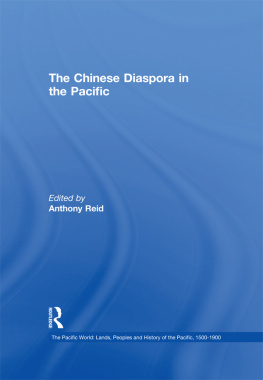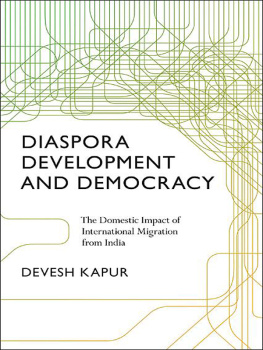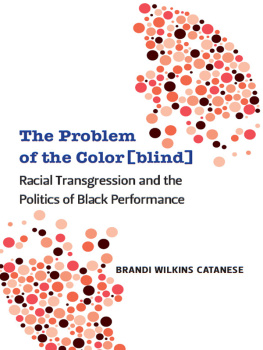First published 1999 by Westview Press
Published 2018 by Routledge
52 Vanderbilt Avenue, New York, NY 10017
2 Park Square, Milton Park, Abingdon, Oxon OX14 4RN
Routledge is an imprint of the Taylor & Francis Group, an informa business
Copyright 1999 Taylor & Francis
All rights reserved. No part of this book may be reprinted or reproduced or utilised in any form or by any electronic, mechanical, or other means, now known or hereafter invented, including photocopying and recording, or in any information storage or retrieval system, without permission in writing from the publishers.
Notice:
Product or corporate names may be trademarks, or registered trademarks, and are used only for identification and explanation without intent to infringe.
Library of Congress Cataloging-in-Publication Data
Catanese, Anthony V.
Haitians: migration and diaspora / Anthony V. Catanese.
p. cm.
Includes bibliographical references (p. ) and index.
ISBN 0-8133-3543-4 (alk. paper)
1. HaitiEmigration and immigrationEconomic aspects. 2. United
StatesEmigration and immigrationEconomic aspects.
3. DeforestationEconomic aspectsHaiti. 4. HaitiForeign
relationsSocial aspects. 5. Economic assitanceHaiti.
6. Haitian Americans. I. Title.
JV7393.C38 1999
304.8'7307294dc21 99-37267
CIP
ISBN 13: 978-0-367-01055-3 (hbk)
In 19811 was asked by some DePauw University students to serve as faculty adviser for a group planning to work in rural Haiti during the nearly month-long interim term. I accepted the offer for several reasons. I had enjoyed being the faculty adviser for two previous work projects in Guatemala and Jamaica. I had found the experience was educationally valuable for undergraduates, and I could use it to enhance classroom learning during the semester. In addition, the experience of living and working in a radically different environment was intellectually stimulating for me as a social scientist interested in welfare economics. Finally, because such volunteer projects were rare in the early 1980s, I realized the opportunity should not be passed up. It was a chance to see a part of the world I had heard of but knew little or nothing about except from accounts found in newspaper and magazine articles.
And so in 1981 I made my first trip to Haiti and had my first meeting with Haitians. Based on my previous trips to Latin America and the Caribbean I expected this one to be a short-term engagement. Fortunately, this brief episode turned into a long-term relationship with a country and its people, which became the basis for this book.
This relationship developed for two reasons. First, the DePauw students besieged me with thoughtful questions about what they noticed in Haiti and about Haitians. Second, a Haitian Episcopal priest, Pre Wectnick Paul, was kind enough to answer all my questions. If the students had not persistently asked me to "profess" about a place and people I knew little and if Pere Paul had not been a patient and wise teacher, this book would never have taken form.
The typical response by a professor to important questions is to do academic research. I quickly discovered that few of my economist colleagues were serious students of Haiti and Haitians thenor now. Most of the early social science literature about the country and its people were doctoral dissertations written by anthropologists, such as Glenn Smucker, with fewer writings by political scientists or sociologists. As a result, my earliest mentors were other social scientists, most of whom were younger than I. Haiti and Haitians provided a research opportunity for an economist who valued the perspective of other social scientists; the lode had not, however, been mined from the perspective of an economist.
In time, I began writing about my new research interest and others became interested in what I wrote. The short-term affair was developing into a full-fledged and symbiotic relationship. I was enjoying the work and others seemed interested in my unique perspective. By the time the United States moved Haiti to the top of its foreign policy agenda in tine early 1990s, I had written enough that others could use my writings in a variety of policy and humanitarian discussions. For example, what should the U.S. foreign policy be toward Haiti? What should U.S. immigration policy be toward Haitians and why were there so many Haitian migrants? What will be the effects of those U.S. policies on Haitians? These policy questions, which were not unique to the United States and Haiti, raised issues common to the rest of the world: targeting the poor, Third World poverty, environmental degradation, refugees, sanctions, the economic development of less developed countries, and migration and transnationalism. These issues are the substance of this book.
My hope is that what the reader learns about Haiti, Haitians, and Haitian Americans is useful in making Haiti a better place for Haitians to live, work, and play. In addition, I hope that readers will become curious and will raise questions about policies between and among all of the world's nations, particularly between the prosperous north and the impoverished south.
The issues raised in this book are mine alone but several persons enhanced the quality and exposition of those ideas. First, and foremost, are Pere Paul, DePauw University students, and Haitians and Haitian Americans. Four close friends and colleagues read this book and made useful comments about its contents: Alex Dupuy of Wesleyan University, two DePauw professorsJames Cooper and Margaret Catanese, and an economist, William Peterson from Empire, Michigan. Without their precious time and useful insights this book would be less readable and useful.
For those of us who do research while teaching at undergraduate liberal arts colleges, time is scarcer than money, although both can be difficult to find. DePauw's Faculty Development Program supported most parts of this book from the mid-1980s to the present through a variety of grants, some involving financial support but most granting released time from full-time teaching. I appreciate the continued support and encouragement of the various Faculty Development Committees who approved my grant requests for the study of Haiti, Haitians, and Haitian Americans.
Anthony V. Catanese
1
Introduction
The oral tradition is quite important to Haitians and Haitian Americans. It is, and has been, the major way of sharing important information, from the misbehavior of the Haitian state, to the relative prices of important basic commodities bought and consumed throughout Haiti, and to keeping in touch with friends and family in the United States, Haiti's "tenth department." The Haitian oral tradition is a long-standing way of learning about the world in which Haitians now live as well as where they may want to live in the future. It is the major way Haitians and Haitian Americans perceive a rapidly changing world.
The messages implied by the numbers in shows Haitian Americans almost twenty times better off than Haitians (18.8 = 84.8/4.5). They also know that to reach this higher income level they must forego income (income index = 0.0) and migrate to the United States to increase their future income. Haitians talk about their family and friends living and working abroad but it is almost always in the context of the United States. They know the vast majority of Haitians are highly dispersed within Haiti and most live in rural and isolated areas with most moving to one city, their capital, Port-au-Prince. This isolation does not preclude migrating within Haiti where the population concentration is low (16 percent) but makes moving to the United States, where their contacts are highly concentrated in a few locations (87 percent), less formidable despite a hostile U.S. immigration policy. Even


